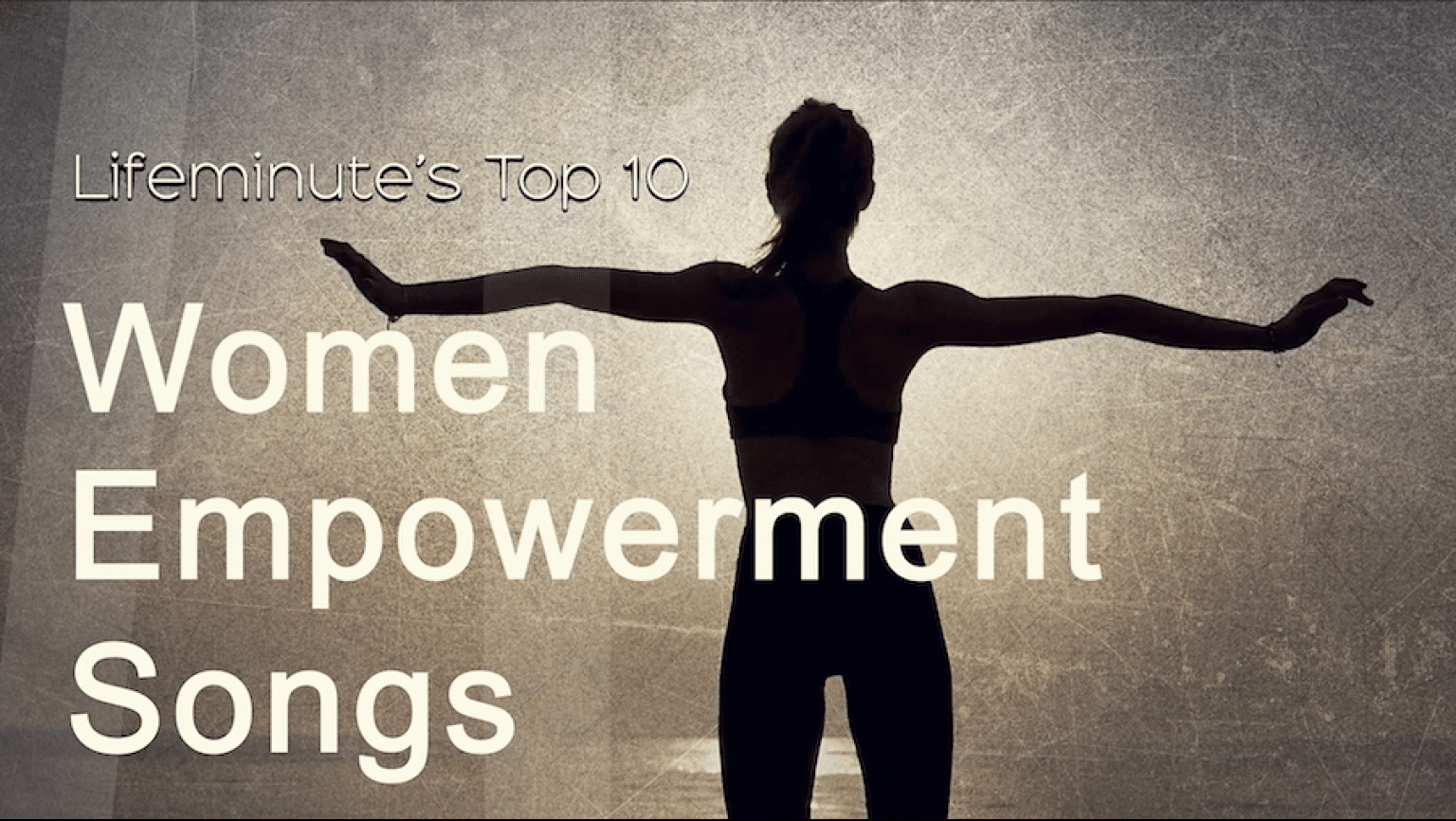20 Unforgettable Women Empowerment Songs That Celebrate Femininity
Women’s empowerment music: feminist soul music
introduction
Music has always transcended mere entertainment, establishing itself as a powerful medium for social change, emotional catharsis and personal expression. In this vibrant genre, there is one particular category that has always been popular over the years—female empowerment music. These songs not only depict social struggles and triumphs but also celebrate femininity in its most unspoilt form This article aims to shine a light on 20 unforgettable female empowerment songs, among which each with a message of strength, resilience and the undying spirit of womanhood.
Through uplifting melodies and thought-provoking lyrics, these songs occupy spaces where women can listen and understand. We are reminded that the battles, victories and journeys ahead still require our collective voices and efforts. From chart-toppers to underground gems, each song speaks to the essence of empowerment, serving as a beacon of light for generations of women around the world Delving into the stories behind these songs, we invite you to explore the depth of their message, the warmth of their passion Join us on this beautiful journey that not only celebrates womanhood but also supports the female empowerment through a universal language of music.
20 Unforgettable Women Empowerment Songs: A Deep Dive
Music is a powerful tool for change. The following songs have not only lifted spirits but have also carried the message of women empowerment far and wide.
1. “Respect” – Aretha Franklin
- Background: Released in 1967, originally written by Otis Redding, Aretha Franklin’s rendition of “Respect” is an unforgettable rallying cry for women’s empowerment.
- Message & Lyrics: The song demands respect and recognition for women, making a strong statement about a woman’s worth and her need for equality.
- Impact: The song became an anthem for the feminist and civil rights movements and has long inspired women to stand up for their independence and rights.
- Data & Studies: Although quantitative data linking this song to social changes is scarce, its prominent placement in movements signifies its social impact.
2. “I Will Survive” – Gloria Gaynor
- Background: This 1978 disco anthem became synonymous with personal strength and resilience.
- Message & Lyrics: “I Will Survive” speaks about overcoming a broken relationship, but its broader message of survival resonated with anyone facing adversity.
- Impact: Its universal appeal helped it to become an anthem for the empowerment of women facing various struggles, not just bad breakups.
- Data & Studies: The song’s enduring popularity can be seen in its frequent use in media and coverage by numerous artists, underlining its cultural significance.
3. “Man! I Feel Like a Woman!” – Shania Twain
- Background: Shania Twain released this country-pop hit in 1999, and it quickly became one of her signature songs.
- Message & Lyrics: With her lyrics, Twain celebrates freedom and having fun as a woman in a lighthearted manner.
- Impact: The song encouraged a confident expression of femininity and womanhood.
- Data & Studies: Twain’s crossover appeal helped to foster greater acceptance of powerful feminist narratives in the traditionally conservative country music genre.
4. “Independent Women” – Destiny’s Child
- Background: This 2000 hit was performed by Destiny’s Child and was part of the soundtrack for the film “Charlie’s Angels.”
- Message & Lyrics: The lyrics assert women’s financial and emotional independence.
- Impact: It became an anthem for women who take pride in supporting themselves and living independently.
- Data & Studies: The song topped the Billboard Hot 100 chart for 11 consecutive weeks, indicating its massive popularity and potential influence.
5. “Roar” – Katy Perry
- Background: Released in 2013 by Katy Perry, “Roar” is a pop anthem with a punchy message.
- Message & Lyrics: Perry’s lyrics encourage women to find their voice and assert their power.
- Impact: The song’s catchy tune and empowering message have made it popular in campaigns and events addressing women’s rights.
- Data & Studies: “Roar” was a commercial success, reaching number one in multiple countries and going multi-platinum, reflecting its widespread resonance.
6. “Stronger (What Doesn’t Kill You)” – Kelly Clarkson
- Background: Kelly Clarkson released this track in 2011, and it became an instant hit.
- Message & Lyrics: The song promotes self-strength and resilience in the face of hardship.
- Impact: It has become an anthem for overcoming challenges, particularly relatable to women worldwide.
- Data & Studies: Clarkson’s song topped the Billboard charts, and its strong performance can be seen as an indicator of its impact on listeners.
7. “Girl on Fire” – Alicia Keys
- Background: Alicia Keys’ 2012 hit is both soulful and powerful in its delivery.
- Message & Lyrics: It celebrates the power and potential of women to overcome obstacles.
- Impact: “Girl on Fire” has become a metaphor for women’s capabilities and strength, inspiring many around the globe.
- Data & Studies: Keys’ performance of the song at various charitable and advocacy events suggests its role in promoting women’s empowerment.
8. “Brave” – Sara Bareilles
- Background: Released in 2013, “Brave” by Sara Bareilles encourages openness and courage.
- Message & Lyrics: It’s an invitation to speak up and be courageous in one’s truth.
- Impact: The song has been widely used as an empowering message, particularly in the LGBTQ+ community and among women.
- Data & Studies: Its significant airplay and use in positive social campaigns are a testament to its influence.
9. “Can’t Hold Us Down” – Christina Aguilera feat. Lil’ Kim
- Background: Christina Aguilera’s 2002 song was a powerful response to gender discrimination.
- Message & Lyrics: This song challenges the double standards faced by women and promotes gender equality.
- Impact: It is an empowerment anthem that gives voice to feminist issues and calls for respect for women.
- Data & Studies: The song was ahead of its time, highlighting issues that are central to modern feminist discussions.
10. “Run the World (Girls)” – Beyoncé
- Background: Beyoncé released this single in 2011, which became an empowering party anthem.
- Message & Lyrics: The song praises the achievements and independence of women.
- Impact: It has been used widely as a call to action for women’s equality and has been performed at many charity and advocacy events.
- Data & Studies: Beyoncé’s performance of the song at Global Citizen Festival and other venues has become symbols of women’s empowerment efforts.
11. “Fighter” – Christina Aguilera
- Background: Released in 2002, Christina Aguilera’s “Fighter” is a rock-infused anthem that channels resilience and empowerment.
- Message & Lyrics: The song speaks to growing stronger and more self-assured as a result of life’s challenges.
- Impact: “Fighter” has become a source of motivation for many women, encouraging them to embrace their struggles as lessons.
- Data & Studies: While specific data is not cited, the song’s popularity and frequent use in empowering contexts suggest a significant impact on its listeners.
12. “Just a Girl” – No Doubt
- Background: No Doubt released this track in 1995, with Gwen Stefani fronting the band, offering a sarcastic take on female stereotypes.
- Message & Lyrics: The song critiques the limitations placed on women and asserts a fervent call for independence.
- Impact: It became an anthem for the ’90s wave of feminist thought, resonating with women tired of being underestimated.
- Data & Studies: It’s enduring popularity, and its role in elevating No Doubt to fame indicates its cultural resonance.
13. “Born This Way” – Lady Gaga
- Background: Lady Gaga’s 2011 hit became an instant anthem for self-acceptance and empowerment across the spectrum of gender and sexuality.
- Message & Lyrics: With a message of embracing one’s true self, the song has a special emphasis on the LGBTQ+ community but speaks to all about the importance of self-love and empowerment.
- Impact: Its impact has been broad, serving as an empowering anthem not only for women but for the LGBTQ+ community and beyond.
- Data & Studies: The song’s commercial success and the establishment of the Born This Way Foundation speak to its influence.
14. “Q.U.E.E.N.” – Janelle Monáe ft. Erykah Badu
- Background: Released in 2013, this song is a funky, genre-bending anthem that challenges societal norms.
- Message & Lyrics: The lyrics question and defy labels placed on women and minorities, promoting individuality and freedom.
- Impact: It’s a powerful call to reject stereotypes and assert one’s identity, resonating with anyone who feels marginalized.
- Data & Studies: Though specific studies are limited, the song’s critical acclaim and positive reception highlight its impact.
15. “Flawless” – Beyoncé ft. Chimamanda Ngozi Adichie
- Background: Beyoncé’s 2013 hit includes a sample of Chimamanda Ngozi Adichie’s speech on feminism, blending pop culture with feminist theory.
- Message & Lyrics: It’s a bold declaration of self-confidence and a critique of societal standards imposed on women.
- Impact: The song brought feminist messages to a mainstream audience, sparking conversations about gender equality and women’s rights.
- Data & Studies: The song’s success and viral nature underscore its cultural significance and impact on discussions about feminism.
16. “Good as Hell” – Lizzo
- Background: Lizzo released this single in 2016, and its upbeat tempo and positive lyrics quickly captured listeners’ hearts.
- Message & Lyrics: It advocates for self-care and independence, empowering listeners to feel good about themselves regardless of their relationship status.
- Impact: Lizzo’s body positivity and advocacy for self-love have inspired many, making this song an anthem for empowerment and confidence.
- Data & Studies: Its chart success and ubiquity on social media platforms indicate its wide-reaching impact.
17. “Most Girls” – Hailee Steinfeld
- Background: Released in 2017 by actress and singer Hailee Steinfeld, “Most Girls” is a pop anthem celebrating the diversity and strength of women.
- Message & Lyrics: The song praises the idea that women can be and do anything, challenging stereotypes and encouraging solidarity among women.
- Impact: It’s become an anthem for young women, promoting self-esteem and the idea that being ‘like most girls’ is a strength, not a weakness.
- Data & Studies: Its popularity among a younger demographic highlights its potential impact on the next generation’s views of femininity and empowerment.
18. “Bad Girls” – M.I.A.
- Background:I.A. released “Bad Girls” in 2012, known for its unique sound blending Eastern musical influences with Western pop.
- Message & Lyrics: The song and its video critique gender norms and celebrate female autonomy and rebellion.
- Impact: The song’s provocative video, shot in Morocco, was particularly impactful, challenging conservative views of women’s roles in society.
- Data & Studies: The song’s widespread acclaim and discussion, especially in feminist circles, underscore its cultural impact.
19. “Try” – Colbie Caillat
- Background: Released in 2014, Colbie Caillat’s “Try” is a heartfelt ballad that questions societal standards of beauty.
- Message & Lyrics: It encourages women to be themselves without seeking approval from others, promoting self-acceptance.
- Impact: The song, coupled with its powerful music video, sparked discussions about beauty standards and the pressures women face, encouraging self-love.
- Data & Studies: The viral nature of the song and video on social media platforms indicates its resonance with audiences worldwide.
20. “Girls Just Want to Have Fun” – Cyndi Lauper
- Background: A classic hit from 1983, Cyndi Lauper’s song became an anthem for female joy and liberation.
- Message & Lyrics: Beyond its surface-level celebration of fun, the song underscores a message of independence and the right to self-expression.
- Impact: It has remained an enduring symbol of female empowerment, often played at rallies, protests, and events celebrating women’s rights.
- Data & Studies: While direct data linking the song to social change is limited, its continued relevance and popularity speak to its lasting impact.
Spanning decades and genres, these 20 songs highlight the enduring power of music as a vehicle for empowerment and change. They celebrate female strength, diversity and resilience and offer a message of hope, unity and liberation.
The Future of Women Power Music
The female power music scene is on the rise, driven by emerging female artists and celebrities who continue to inspire with their music. The future looks bright, and trends point to a more diverse and global approach to empowerment as well.
trends and forecasts
- Global influence: The influence of global musical traditions is likely to enhance the musical genre, bringing different sounds and textures to the forefront in an empowering narrative.
- Collaborative practices: can increase collaboration between women from different genres and backgrounds, creating an inclusive and multi-dimensional discourse of empowerment.
- Digital platforms: The role of social media and streaming services in promoting and distributing female power music will continue to grow, making this music available to a wider audience.
conclusion
A journey through the world of female empowerment music reveals a rich history of resilience, unity and triumph. From classics like Aretha Franklin’s “Respect” to contemporary hits like Lizzo’s “Good as Hell,” these songs have been rallying cries, promoting self-love, independence and collective female empowerment
Looking to the future, the prospects for new voices and stories remain high. The growth of this genre promises to continue to celebrate femininity in all its forms, challenge social norms and inspire audiences around the world
After all, female empowerment music is more than just music; They are a powerful force for change, providing comfort, inspiration and a sense of community. As society evolves, these songs will undoubtedly play an important role in shaping our understanding of power and equality, affecting generations of female voices.



